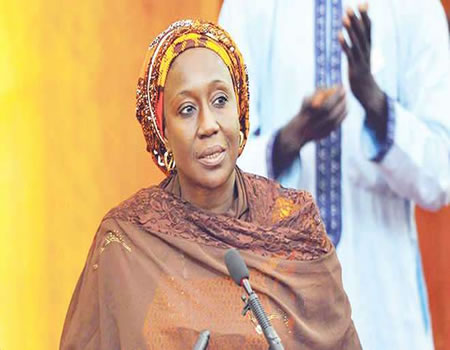
The minister gave the advice at the 11th Annual International Shea Conference organised by the Global Shea Alliance (GSA) and National Shea Products Association of Nigeria (NASPAN) in Abuja.
According to her, the country’s ability to tap the benefit from the sector depends on how well we develop the capacity of stakeholders, especially women to produce highly competitive Shea butter.
“Practitioners will agree with me that the price differential of Shea nut in the international market when compared to that of Shea butter is huge.
“We must, therefore, emphasize the importance of adding value to our nuts through processing at this conference and other products that meet safety and quality requirements of the international market.
“It is unacceptable that about 80 per cent Shea is exported in raw form.
“For us to derive maximum benefit from the sector and ensure its continued sustenance, we must develop our ability and capacity in creating diversified products from Shea.
“In this way, we can achieve expanded market access for the Shea and Shea products, “she said.
According to the minister, this must be achieved if the country must embrace continuous research and development in the sector toward the development of new diversified products and engaging consumers.
She said that as the theme of the conference implied, as ‘togetherness’ connoted greatness, it was imperative for all stakeholders to articulate a common position and agree on sustainable approach towards the development of the Shea sector.
She urged Nigerians to use this opportunity to explore the huge potential available in the Shea sector for the benefit of the country at large.
Mr Jibril Bokani, the President of NASPAN, said that the country produced 57 per cent of the world production of Shea, adding that this would, in turn, create a lot of jobs, wealth and opportunities.
He said that the challenges facing the sub-sector were enormous, calling on the Federal Government to assist the association to compete favourably at the international world.
“Some of the challenges are inconsistency in the quality, there is no uniformity and Nigeria is vast. Niger state is doing its best in Shea. We need other collaboration from other Shea producing states.
“Without uniform quality across the board, there are serious challenges. We want all the Shea producing states to be involved. We have only three to four states in the country that are serious with Shea production.
“We are pushing on the other states to come on board. With the percentage of Shea produced in the country, this means, we can equally determine the price if we are really serious.
“There has been support from the Federal Government, but there is need for more”, he said.
Bokani, however, added that in the next few years, he expected to see a refined Shea butter in the country, adding that some companies had indicated interest.
“We should not be exporting the nuts, but the butter and other potential from the nuts. This will help us grow faster and generate income to our economy”.
Earlier, Mr Aliyu Abdulhammed, the Managing Director, Nigeria Incentive-Based Risk System for Agricultural Lending (NIRSAL), said Nigeria was losing about 60 to 70 per cent value of Shea nuts through collection process and called for training on that.
“The quality of Shea nut itself is collected by women that is why we lose 60 to 70 per cent of the value.
“These women do not know how to collect it well, store it well, how to create grade one, two and three stages.
“If the primary processing is not done well, it affects the quality of oil or butter they will produce downstream.
“Our primary intervention here is on how we can organised these women to train them down and create a business module whereby they will collect and earn more from the beginning.
“It is left for the association, value chain actors to collaborate with NIRSAL. We are going to invite them and sit with them.
“We will do value chain analysis by breaking down the value chain of Shea into its component parts and create business Module around each component and that will allow finances into it, “he said.
Abdulhammed said that the government had put policies in place, noting that it was now left for the actors in the sub-sector to take advantage of the policies on ground.
WATCH TOP VIDEOS FROM NIGERIAN TRIBUNE TV
- Let’s Talk About SELF-AWARENESS
- Is Your Confidence Mistaken for Pride? Let’s talk about it
- Is Etiquette About Perfection…Or Just Not Being Rude?
- Top Psychologist Reveal 3 Signs You’re Struggling With Imposter Syndrome
- Do You Pick Up Work-Related Calls at Midnight or Never? Let’s Talk About Boundaries






